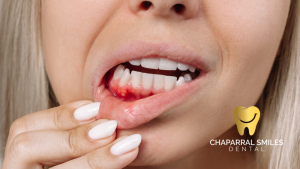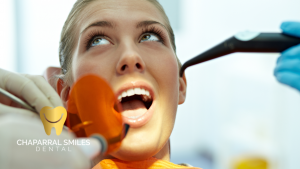Maintaining good oral hygiene is crucial for overall health and well-being. Poor oral hygiene can lead to a variety of dental problems such as cavities, gum disease, and bad breath. Additionally, research has shown that poor oral health can also contribute to other health issues such as heart disease, diabetes, and respiratory infections. By practicing good oral hygiene, individuals can prevent these issues and maintain a healthy smile.
Furthermore, good oral hygiene can also have a positive impact on one’s self-esteem and confidence. A healthy smile can boost self-confidence and make a person feel more comfortable in social situations. It can also have a positive impact on professional opportunities, as a bright and healthy smile can make a great first impression. Overall, maintaining good oral hygiene is essential for both physical and emotional well-being.
Key Takeaways
- Good oral hygiene is important for overall health and well-being
- Proper brushing techniques include using a soft-bristled brush and gentle circular motions
- Flossing helps remove plaque and food particles from between teeth
- Mouthwash can help reduce plaque, prevent cavities, and freshen breath
- Limiting sugary and acidic foods can help prevent tooth decay and erosion
- Regular dental check-ups are essential for maintaining oral health
- Using fluoride toothpaste can help strengthen tooth enamel and prevent cavities
Proper Brushing Techniques
Proper brushing techniques are essential for maintaining good oral hygiene. It is recommended to brush the teeth at least twice a day, in the morning and before bed. When brushing, it is important to use a soft-bristled toothbrush and fluoride toothpaste. The toothbrush should be held at a 45-degree angle to the gums and moved in a gentle, circular motion to effectively remove plaque and food particles. It is important to brush all surfaces of the teeth, including the front, back, and chewing surfaces. Additionally, it is important to brush the tongue to remove bacteria and freshen breath.
In addition to proper technique, it is also important to replace the toothbrush every three to four months or sooner if the bristles are frayed. Using an old toothbrush can be ineffective in removing plaque and can also harbor bacteria. By following proper brushing techniques and using the right tools, individuals can effectively remove plaque and maintain good oral hygiene.
The Role of Flossing
Flossing is an essential part of maintaining good oral hygiene. While brushing can remove plaque from the surfaces of the teeth, flossing is necessary to remove plaque and food particles from between the teeth and along the gumline. If these areas are not properly cleaned, it can lead to the buildup of plaque and eventually result in gum disease and cavities.
When flossing, it is important to use a piece of floss about 18 inches long and wrap it around the middle fingers, leaving about 1-2 inches of floss to work with. Gently guide the floss between the teeth using a back-and-forth motion, being careful not to snap the floss into the gums. Curve the floss around each tooth in a C shape to ensure thorough cleaning. It is important to use a clean section of floss for each tooth to avoid spreading bacteria. By incorporating flossing into a daily oral hygiene routine, individuals can effectively remove plaque from hard-to-reach areas and maintain healthy gums.
Benefits of Mouthwash
Mouthwash can be a beneficial addition to an oral hygiene routine. It can help to freshen breath, reduce plaque buildup, and prevent gum disease. Mouthwash can reach areas that may be missed by brushing and flossing alone, providing an extra layer of protection against bacteria and plaque.
There are different types of mouthwash available, including fluoride mouthwash which can help to strengthen enamel and prevent cavities, and antiseptic mouthwash which can reduce bacteria in the mouth. It is important to choose a mouthwash that is alcohol-free to avoid drying out the mouth and causing irritation. Mouthwash should be used after brushing and flossing, swishing it around the mouth for about 30 seconds before spitting it out.
While mouthwash can provide additional benefits to oral hygiene, it should not be used as a substitute for brushing and flossing. It is important to incorporate mouthwash as part of a comprehensive oral hygiene routine to maintain optimal dental health.
Limiting Sugary and Acidic Foods
Diet plays a significant role in oral health, and limiting sugary and acidic foods can help prevent dental issues such as cavities and enamel erosion. Sugary foods and drinks can contribute to the buildup of plaque and bacteria in the mouth, leading to cavities and gum disease. Acidic foods and drinks can erode enamel over time, making teeth more susceptible to decay.
It is important to limit the consumption of sugary snacks, candies, and sodas, as well as acidic foods such as citrus fruits and vinegar-based dressings. When consuming these foods, it is best to do so in moderation and follow up with thorough brushing and flossing to remove any residue from the teeth.
In addition to limiting sugary and acidic foods, it is important to drink plenty of water throughout the day to rinse away food particles and neutralize acids in the mouth. By making mindful choices about diet and hydration, individuals can maintain good oral health and prevent dental issues.
Regular Dental Check-ups

Regular dental check-ups are essential for maintaining good oral health. Dentists can identify early signs of dental issues such as cavities, gum disease, and oral cancer, allowing for prompt treatment and prevention of further complications. Additionally, regular cleanings by a dental hygienist can remove plaque and tartar buildup that cannot be effectively removed by brushing and flossing alone.
During a dental check-up, the dentist will also perform a thorough examination of the teeth, gums, and mouth, looking for any signs of decay or disease. X-rays may also be taken to identify any issues that may not be visible to the naked eye. By scheduling regular dental check-ups at least twice a year, individuals can maintain optimal oral health and address any concerns before they become more serious.
Using Fluoride Toothpaste
Fluoride toothpaste is an important tool in maintaining good oral hygiene. Fluoride helps to strengthen enamel and prevent tooth decay by remineralizing areas that have been weakened by acids from plaque bacteria. It also inhibits the growth of bacteria in the mouth, reducing the risk of cavities.
When choosing a fluoride toothpaste, it is important to look for one that has been approved by dental associations for its effectiveness in preventing cavities. It is recommended to use a pea-sized amount of fluoride toothpaste when brushing the teeth, as using too much can lead to fluorosis over time.
In addition to using fluoride toothpaste, it is important for individuals to drink fluoridated water if available in their area. Fluoride helps to protect teeth from decay and maintain good oral health. By incorporating fluoride toothpaste into a daily oral hygiene routine, individuals can strengthen enamel and prevent cavities for a healthy smile.
If you’re looking for more information on general dentistry and how to maintain good oral hygiene, check out Chaparral Smiles Dental’s general dentistry services. They offer a range of treatments and tips to help prevent the need for root canal treatment, including regular cleanings, exams, and education on proper oral hygiene practices.





